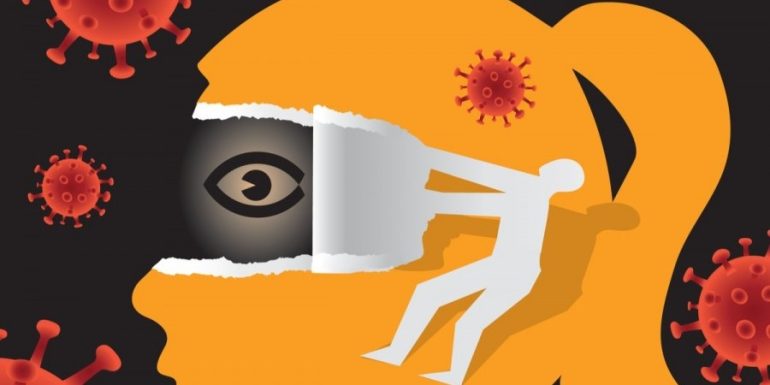The idea that the coronavirus should slowly be treated as an endemic disease and not as a pandemic is gaining ground. This trend is spreading to both Europe and America.
According to NYT, governments and societies around the world are currently facing a milder pandemic since Omicron, despite its rapid transmission, does not translate into a hospital record.
What is happening in the world
At Spain, for example, Prime Minister Pedro Sanchez said last week that citizens "should learn to live with this (coronary artery), as we do with many other viruses". He also said the country needs to adapt its national approach to better align with the way it handles flu cases. Olivier Veran, the French Minister of Health, recently stated that the high level of infection and the strong vaccination rate in France they could "maybe" mean that this (that is, Omicron) would be the last wave.
"Rightly so was the coronavirus pandemic at first. But this can not go on forever. The crisis must be turned into a manageable health threat without mass upset and excessive stress. "President Biden is battling the virus as an emergency in his first year in the White House, but he must change tactics soon," a Washington Post headline read this week, according to The Step. WP advises Biden through the article to follow the recommendations of six experts on strengthening the health system and adequacy in vaccines and tests.
The World Health Organization, however, is ringing the alarm bell in countries that have begun flirting with a policy change. The WHO warned that it was too early to treat the virus as the flu, as there is still much we do not know. He also stressed that Omicron is scanning several countries and reminded that a large part of the world's population remains unvaccinated and it is possible that this will lead to other, new variants of the virus.
However, proponents of the "learn to live with the virus" approach point out that the latest increase in cases is different from the early days of the virus. They emphasize that a large part of the population of Europe is vaccinated and state that despite the high numbers of Omicron we do not have a high rate of hospitalizations.
"It may not be an emergency forever," Graham Medley, a professor of infectious diseases at the London School of Hygiene and Tropical Medicine, told BBC Radio 4 this week. He added that the end of the pandemic is likely to occur in phases.
Meanwhile, White House Chief Medical Adviser Anthony Fauci appeared skeptical on Monday (January 17th) about whether the Omicron mutation really marks the end of the coronavirus pandemic. As he said, it is still too early to predict whether the Omicron mutation will be the last wave of the pandemic. "It's an open issue," Fauci told The Davos Agenda.
On the other hand, a return to normalcy by spring is predicted by the head of the pharmaceutical industry Pfizer Albert Burla.
Speaking to ERT, however, the associate professor of Epidemiology of EKPA, Dimitris Paraskevi, gave messages of optimism. In particular, he stated that, "if our behavior changes, if we relax, we may see small flares in the future. Generally due to the fact that a large percentage of citizens have taken the booster dose but also become immunized due to the Omicron exposure and the Delta variant. "From now on, the picture will improve and especially after February and Spring, the situation is expected to be much better," he added.
Asked if we have "gotten rid of the pandemic", Mr. Paraskevi predicted that we will now be in a situation where the coronavirus will not cause serious diseases, something that, as he said, is already happening in Western European countries, where the immunity rate is very high. flat.
"We will learn to live with the coronavirus without it bothering us, without causing us serious illness, in proportion to the flu. "We are close to this stage but a crucial parameter is whether the vulnerable groups will be vaccinated," he said.
With information from ERT, New York Times, cnbc and SKAI.
